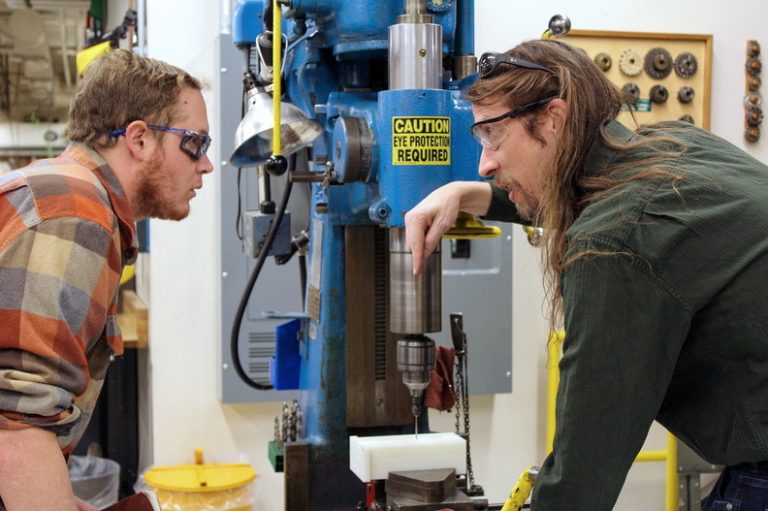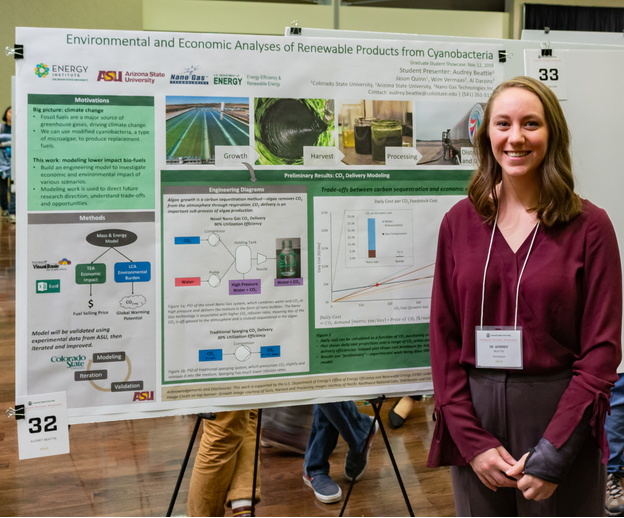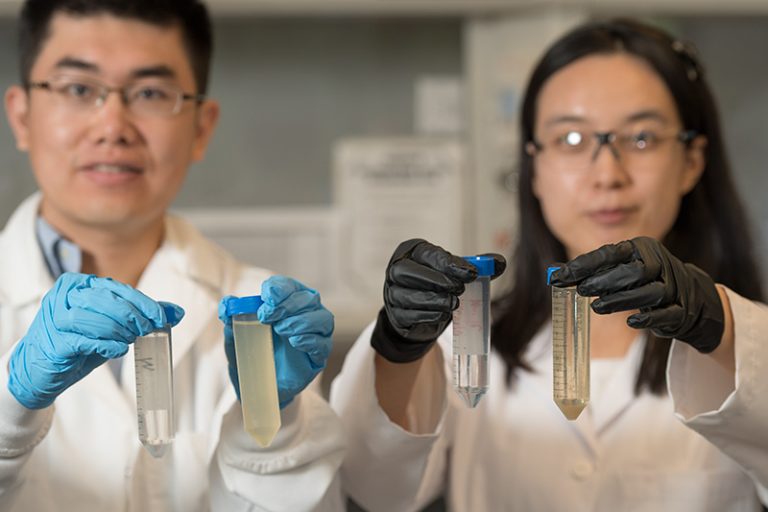Research 101: A Guide to Research for Undergraduate Engineers
Hi everyone! My name is Ananya and I am a third-year student studying Chemical and Biological Engineering. As you may already know, there are tons of involvement opportunities on campus and my favorite one happens to be undergraduate research! So if you are looking to learn more about research at CSU, then this is the blog for you!
How Can You Get Involved in Research?
1. Reach Out to Professors
One of the most common ways to get involved in research is by reaching out to faculty. Even though reaching out to a professor about research as a first-year student may seem daunting, professors are very receptive to undergraduate research. Many faculty members began research during their undergraduate careers and are looking to provide students the opportunity to do the same.
There are lots of research opportunities within each engineering department. Take a look at some of the ongoing research here! Engineering professors are involved in cell and tissue engineering, protein engineering, cybersecurity, sustainability, and much more! Check out the ‘Faculty’ page of whichever discipline of engineering you would like to pursue research in, and read through each professor’s biography. This will give you a brief overview of what the professor’s research lab is focused on investigating and allows you to easily determine if you would like to work in that lab. Once you find something that intrigues you, email the professor to set up a time to chat about their ongoing research!
2. Scott Undergraduate Research Experience (SURE) Program
The SURE program is a great way for recipients of the Walter Scott, Jr. Undergraduate Scholarship and first generation students to connect with research opportunities across campus. A huge benefit of this program is that it provides faculty mentorship and funding! You can read more about SURE here.
3. Honors Undergraduate Research Scholars (HURS) Program
The HURS program pairs students up with faculty researchers across campus and gives them the opportunity to attend, and judge at, graduate student showcases. In order to remain in the program, students must attend either one or two Research Etc. Workshops (examples include research, poster, and distinguished speaker presentations) per semester and volunteer at graduate student showcases. If you are interested in finding out more about HURS, email TILT_OURA@mail.colostate.edu.
4. Undergraduate Research and Opportunities (UROP) Program
The UROP program is designed for students in any major and year at CSU to find research opportunities on campus. If you would like to participate in this program, you can email TILT_OURA@mail.colostate.edu.
7. Reach Out to Your Teaching Assistants (TAs)
While teaching assistants (TAs) are great resources to help you navigate coursework and lab work, they can also help you find out about research opportunities. Many TAs are involved in research on campus and can help you understand what the research focus of different lab groups is. TAs can also let you know if their research labs have any openings for undergraduates, if they are already aware of your interest in pursuing research.
7. Check Out the Student Employment Opportunities on RAMweb
Oftentimes, the student employment section of RAMweb contains lots of research job listings. These jobs are an excellent way to gain research experience and get paid!

What Are The Benefits of Research?
1. Public Speaking and Presentation Skills
Partaking in research gives you many opportunities to present your work at showcases like CURC (Celebrate Undergraduate Research and Creativity Showcase) and MURALS (Multicultural Undergraduate Research, Art, and Leadership Symposium). These events provide undergraduates with the skills necessary to effectively communicate their research findings to diverse audiences, and understand the interdisciplinary nature of research.
2. Graduate School and Internships
The skills students learn in research are great additions to any engineering resume. Participating in research may help show graduate schools and internship recruiters that you have been heavily involved in activities outside of your curriculum and have made a considerable effort to learn new, in-depth information you would not necessarily learn through coursework.
Also, research enables you to interact with graduate students in your lab to find out more about graduate school, why those students chose to pursue it, the benefits and drawbacks of it, and the workload that it entails. It allows you to hear the different perspectives on graduate school so that you can determine if it is the right choice for you. Also, you can talk to graduate students about their experience with picking a graduate school and they can help guide you through the application and decision process.
3. Networking with Faculty
Taking part in research helps you form meaningful connections with faculty! Professors have a ton of experience working in academia and/or industry and can advise you on future career prospects or help answer any questions you may have about your area of study. Also, you can request professors to write you letters of recommendation for scholarships and jobs. If the professors truly know you and what you bring to the table, your letter of recommendation will be more detailed and applicable to your goals and interests.
4. Work Study
Work study is a great way to get paid for on-campus work. Since research is a huge part of our campus, some professors have sufficient funding for undergraduate and graduate students working in their lab. If you are on work study, I recommend reaching out to faculty researchers to find out if they have any paid research openings.
5. Career Goals
As I mentioned earlier, research teaches you tons of knowledge you would not necessarily learn in a classroom. This helps in deciding which technical electives are of interest to you and determining which electives may help with your career goals. Also, having prior knowledge of the content you will learn in technical electives via research is fantastic! Having hands-on experience that reinforces the theoretical knowledge you have, and will continue to learn, helps you familiarize yourself with complex topics much more easily. Also, it may introduce you to jargon that is common in industry, which may be beneficial when doing an internship.

Common Misconceptions about Research
1. Future Career in Research
One of the common misconceptions about research is that you should only partake in it if you are looking to pursue it in the future. While doing undergraduate research is great if you are looking to go into grad school or do research as a career, research can also be done to navigate different career prospects. For example, if you are a Mechanical Engineering student wanting to pursue a career in material science, you can become involved in a material science lab to get an idea of what the career entails and decide if it truly fascinates you.
2. Limited Undergraduate Student Contribution
Prior to getting involved in research, I was curious about the extent to which undergraduates are allowed to contribute to projects. In my experience, all graduate students and faculty members encourage undergraduates to lead projects of their own and form a more in-depth understanding of the ongoing research.
3. You Have to Work in an Engineering Lab
Research is interdisciplinary in that it allows students to acquire new skills that are applicable to various fields. The great thing about pursuing research is that it gives you an opportunity to explore topics you are passionate about outside the classroom! So reach out to research labs that fascinate you, regardless of your engineering department, and expand your interests! You can check out the experience of a fellow engineer working in a lab in the College of Health and Human Sciences in her blog, A Love Letter to Biomedical Engineering: Why I Chose BME.

I hope all that information helps guide you through the research process! If you have any questions, feel free to email us at explore@engr.colostate.edu!

Author: Ananya Vajapayajula
Ananya is an international student at CSU studying Chemical and Biological Engineering. She is in the University Honors Program, the American Institute of Chemical Engineers (AICHE), and Engineers Without Borders (EWB). During her time at CSU, she has worked in research labs, at the CSU Bookstore, and as an Engineering Student Ambassador.
If you have any questions, please feel free to reach out to the engineering ambassador team at explore@engr.colostate.edu!